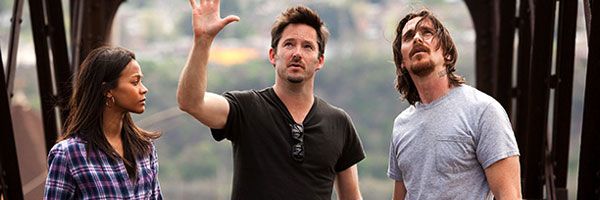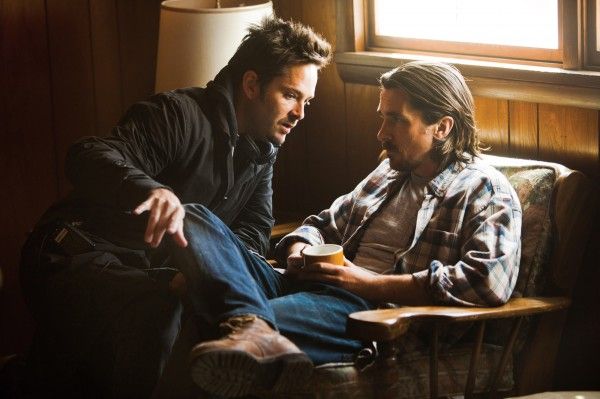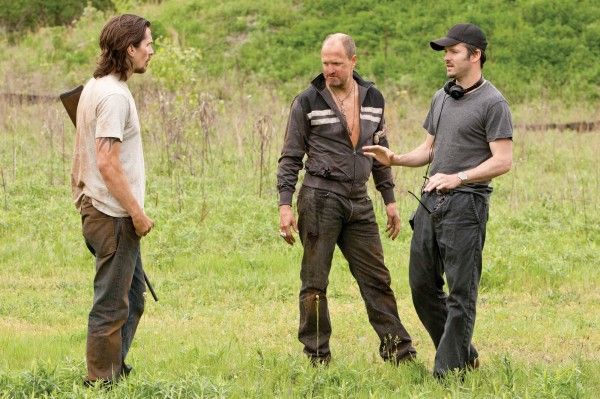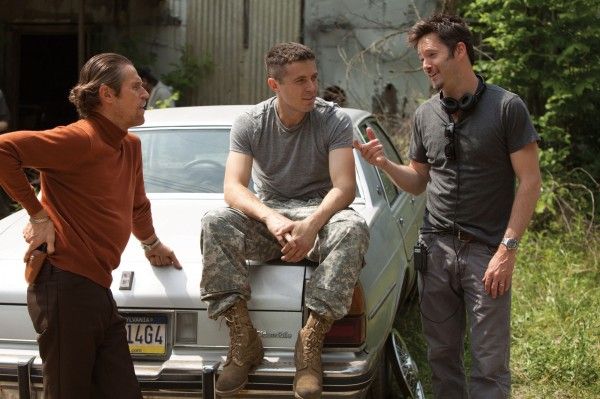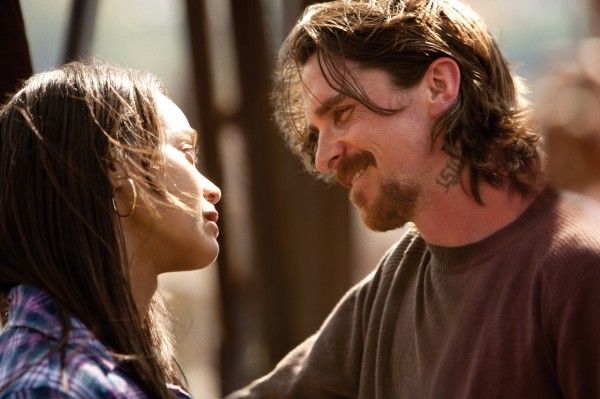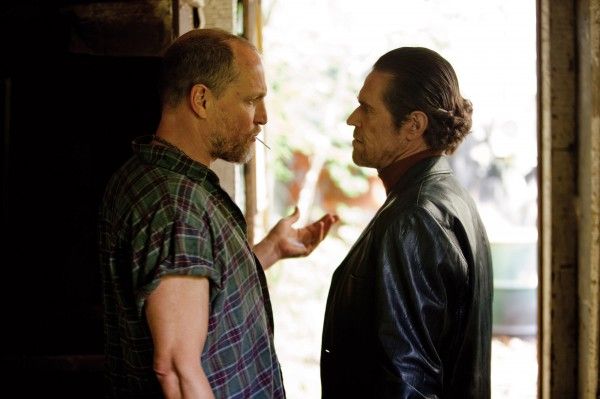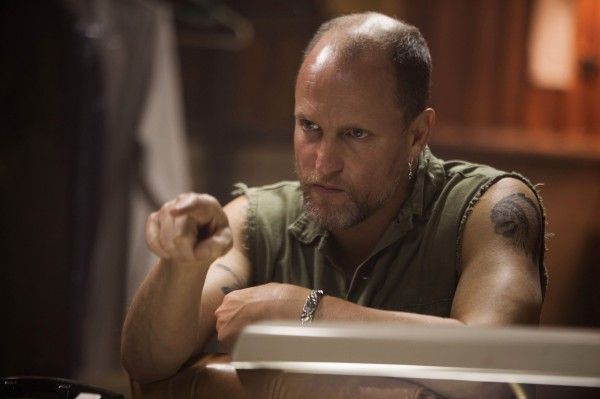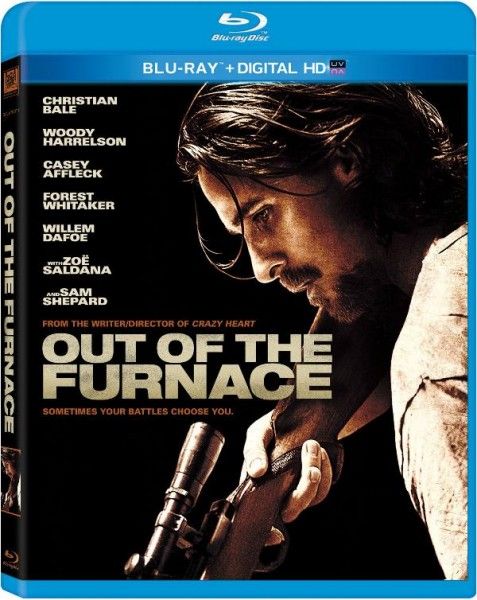From writer/director Scott Cooper, Out of the Furnace (now available on Blu-ray/DVD) is a gripping and powerful drama that tells the story of Russell Baze (Christian Bale), a man leading a dead-end life, working a meaningless steel mill job and caring for his terminally ill father. When his brother Rodney (Casey Affleck) returns home from Iraq, he is lured into a ruthless crime ring and mysteriously disappears, causing Russell to want to seek justice. The film also stars Woody Harrelson, Forest Whitaker, Willem Dafoe, Zoe Saldana and Sam Shepard.
During this recent exclusive phone interview with Collider, filmmaker Scott Cooper talked about his desire to tell very personal stories, his process for working with actors who all have very different approaches to their craft, why his acting experience works to his advantage, how music is one of the most important things in his life, how Eddie Vedder came to re-record the Pearl Jam song “Release” for the movie, and what he’s most proud of with the film. He also talked about his next film, the Whitey Bulger biopic Black Mass, why the compelling nature of the story appealed to him and that he’s already deep into collaborating with its star Johnny Depp, as well as why he ended up walking away from the adaptation of Stephen King’s The Stand, and how his kids want him to make a movie that they can see. Check out what he had to say after the jump.
Collider: You’ve said that you didn’t want to do this film until you were given some freedom to personalize it and make it a story that you wanted to tell. As a filmmaker, do you feel like you have to be personally connected to the material, in some way, in order to give so much of your life to making a film?
SCOTT COOPER: Certainly for my first two films, I wanted to tell very personal stories. Out of the Furnace was both very painful and difficult, but also cathartic. You hope that the work endures, and you always want to tell stories about great characters, who happen to be human. That’s what interests me. I certainly have done that, and now I’m about to tell a story about someone who is not personal to me, but I will get to the root of psychology and behavior.
That’s the Whitey Bulger biopic, Black Mass?
COOPER: It is, James “Whitey” Bulger. It’s a fascinating story.
Are you doing endless amounts of research on that?
COOPER: It’s all that I do, 25 hours a day. I’m very, very excited about it.
Was that something that was from a script that already existed, that you then added to, or did you start from scratch?
COOPER: Yeah, there was a script. Out of the Furnace really bares no resemblance to the first script. It was a very well-written piece that I just didn’t have any interest in filming, so I wrote my version of a very personal story. But this one has a very, very good script that I’m just personalizing and trying to make more humanistic.
What was it about Whitey Bulger that made you want to tell a story that you’re not personally connected to, in the way that you were with your first two films?
COOPER: Well, it’s compelling nature, and you never want to repeat yourself. The process of making very personal stories is very taxing. It’s sometimes harrowing to release movies like Out of the Furnace, when you realize that audiences don’t particularly want to embrace the harsh realities of life and would prefer to be entertained, which I understand because we all live very difficult lives. Perhaps audiences would like to laugh more than my film offers. But, you can only make those films every so often. They’re tough to recover from.
Have you already started to collaborate with Johnny Depp, or is it not that far along yet?
COOPER: Yes, Johnny and I are deep into it.
Do you enjoy working with actors who really like to have a say in what they’re doing?
COOPER: Yes, that’s the only way. I only want to work with actors to have a strong point of view and who want to race to set. And Johnny is that type of actor. He is a consummate actor. He’s always pushing himself and always playing something different. He’s one of the best actors in American screen history. Our hope is to really craft a full-bodied portrait in ways that you haven’t seen. It’s exciting to see an actor like Johnny really attracted to a part like this because you’ve never seen him like this.
You have such a great cast of actors in Out of the Furnace, but they’re all actors who seem to have very different approaches to their craft. How do you handle it, when you have actors with such different approaches in the same scene? Do you have to just pull them each aside individually?
COOPER: Yes, and you have to approach both actors, or all three or four, individually and understand their process because no two actors have the same process. And I happen to be working with actors who are all deeply interior actors first, even if they’re playing a great physical transformation, as we all have seen from Christian [Bale]. He comes from a very deeply personal and emotionally truthful place. I only have interest in working with those actors who aren’t afraid to push themselves and take risks, and who aren’t afraid to fail, really. And every actor has done that, in this film. I think the performances in Out of the Furnace are, for the most part, as good as screen acting gets, from top to bottom, without being overt and without being too technical and without playing for the cameras and for the audience, which I tend to loathe.
Do you think having acting experience really helps you understand what an actor needs from their director?
COOPER: It’s critical. If you don’t have that understanding and that same language as an actor, you’ll never get those kinds of performances. If you do, you can rest assured that they are self-directing.
Does having children also help you, because it really teaches you to be patient and to listen to them individually?
COOPER: Exactly. I’m doing it all day, as a father. My two children are very different, and you have to address their needs and wants and issues very differently.
Do you find it more intimidating to direct actors who are also accomplished directors themselves, or do you find yourself listening more intently to what they have to say and soaking that up, in return?
COOPER: It’s great when you direct actors who have directed because they understand exactly what you’re dealing with, and they tend to be more patient and open and willing, in realizing that not only do you have to deal with actors, but you have to deal with the camera and sound and production design and background, and everything else. They’re very understanding of that. I could not have asked for a better group of actors, in both of my films, to work with. I say that sincerely and would work with every one of them again. In every performance, they all came and really gave their very, very best. Nobody was self-directing. Nobody was phoning it in. It was just remarkable. I will hopefully be able to cast that way with Black Mass, as well.
The music you use to accompany and illustrate your stories seems to be as important to you as the story itself. Why does that go hand in hand for you? Has it just always been that way for you?
COOPER: Yeah. I listen to a lot of music while I’m writing. I listen to music, every day. I wake up and my children are listening to classic music in the morning, and then I turn to NPR when they go to school and listen to KCRW throughout my day. If I’m writing something very specific, I may be listening to Enrico Caruso, I may be listening to Eminem, I may be listening to early Pearl Jam, or whatever is speaking to my characters, at that time, in the world they might be inhabiting. Music is one of the most important things in my life. I never want my scores to be overbearing. I want them to really, in a very visible way, accompany my characters interior emotional life.
Aside from the fact that it’s one of my favorite songs by my favorite band, I loved your use of Pearl Jam’s “Release” in this film.
COOPER: That’s never been used in anything commercial.
How did that come about?
COOPER: I thought about what the formative music would be, that Russell Baze would be listening to. Well, he’s similarly aged as I and grew up probably feeling that type of Generation X angst, so it was Mudhoney and Nirvana and The Meat Puppets and Pearl Jam. That particular song about the loss of a father had always touched me. When I finished the film, I placed it in the movie, in the very beginning, and it had worked beautifully, and I placed it at the end. I reached out to Eddie Vedder, whom I did not know, and asked him if I could use the song. I knew that he was very loathe to allow that song, in particular, to ever be used for any commercial purposes, but he liked Crazy Heart a lot. He invited me up, so I went to Seattle and screened the movie for him. He came out of the theater and was so visibly moved, and moved to tears. He said, “Not only can you use that, I’ll write stuff for you.”
Out of that came a really wonderful friendship. And then, he re-recorded the song, for the first time since 1991, for the final moments of the film. It was really, really remarkable. Ed is a beautiful man, and it was the perfect song that spoke to Russell Baze and everything that he’s going through. I’m sure there are people who don’t like it, but I happen to. So, when you make a film like that, that touches Eddie Vedder and his band, in the way that it did, and you have your cinematic heroes, whom you’ve admired, reach out to you, and actors that you’ve long admired but didn’t know, reach out to you after seeing Out of the Furnace, it makes it all worth it. And then, most importantly the mayor of Braddock, Pennsylvania penned this very eloquent piece to the editors of Variety about how we got the film right. Then, you know you’ve done the right thing.
Now that you’ve had a bit of distance from the film, what are you most proud of with it, in regard to the finished product, and are there still things that, when you see it, you wish you could go back and tweak?
COOPER: No, I’m happy with every frame and, most importantly, it’s uncompromising nature, in an era where films and filmmakers want to curry favor with audiences and want to curry favor with that shiny gold man. The working class of America is too under-served in American cinema, and I felt it important to illuminate their plight. Fortunately, those audiences seemed to really, really like it. Of course, with any film, there are people who love it and there are those who have a very strong distaste for it. It was Kipling who said that you have to treat both success and failure as imposters. So, what I try to do is just tell a story in the most truthful manner possible.
Do you enjoy putting together special features, extras and deleted scenes for the Blu-ray/DVD release?
COOPER: Not so much, just because you’re always afraid that people will say, “Wow, that’s a great scene. Why wasn’t it in the movie?” And sometimes you show too much of the mystery behind what it means to make a film. But, that’s all necessary. It’s all about selling, right? But I’m very, very proud of the film and hope that it will endure. I hope that when people see the film, it doesn’t leave their consciousness quickly, as most movies do.
Because of the type of films you make, are people surprised when they find out that you’re a pretty positive and optimistic guy?
COOPER: I think so. Because this was such a personal story and Russell is based on someone very dear to me, you always try to tell it as truthfully as possible. I’m about as positive a person as there is, quite frankly, but I also don’t want to shy away from the harsh realities of life and what people are experiencing. This has been a very, very difficult five years in America, and maybe longer, and I don’t think we’re out of the woods yet. I think these people need to have their voices heard, or at least their stories told, in particular, those soldiers who return from Iraq and Afghanistan who suffer from post-traumatic stress disorder, and 22 of them a day take their lives. It’s really unfortunate, and I wanted to tell their story in a very subtle fashion without making it an issues movie. It subtlely laces in, but for some people, it’s too subtle.
Even though you get these great actors for your films, does it still feel like a fight to get films like Crazy Heart and Out of the Furnace made?
COOPER: Yes, it’s very difficult. For the most part, studios want to be able to sell something in a happy mill and have repeat viewing, and sell to kids. They have corporate parents that they need to satisfy. I understand that. It’s a business. It’s show business, and not show art. But fortunately, there are films like 12 Years a Slave, or Thomas Vinterberg’s The Hunt, or The Great Beauty that get made and you realize that they’re made for the right reasons.
When you’re doing a movie that’s this intense and dark, did you ever think about doing a comedy with a happy ending next?
COOPER: Well, I think my kids would love that. They want me to make something they could see, that’s PG or PG-13. Eventually, I hope to. But you try, at least for your first couple of films, or as many as you can, to personalize them. I just haven’t quite found that story, but you never know. I think a lot of people would like that.
What happened with your involvement with The Stand? Did that just not work out?
COOPER: Yeah, I’ve moved on. It was a great process of connecting with Mr. [Stephen] King. It’s a great piece, but it’s a tough story to crack in one telling. It really should probably be told not unlike The Lord of the Rings, so you could really do justice to such a great piece of material. He’s a great guy and so supportive, but if you’re going to take something on like that, you want to make sure you get it right.
Out of the Furnace is now available on Blu-ray/DVD.

